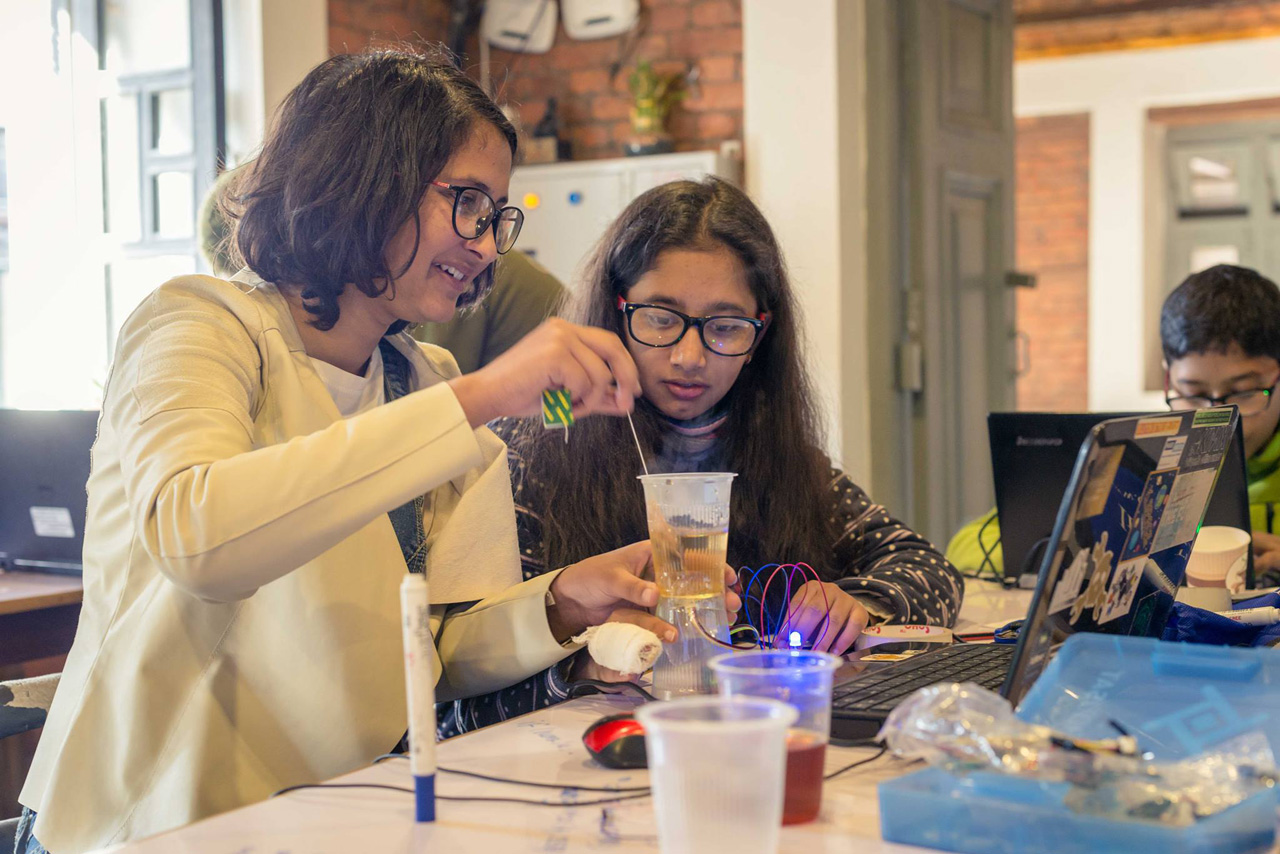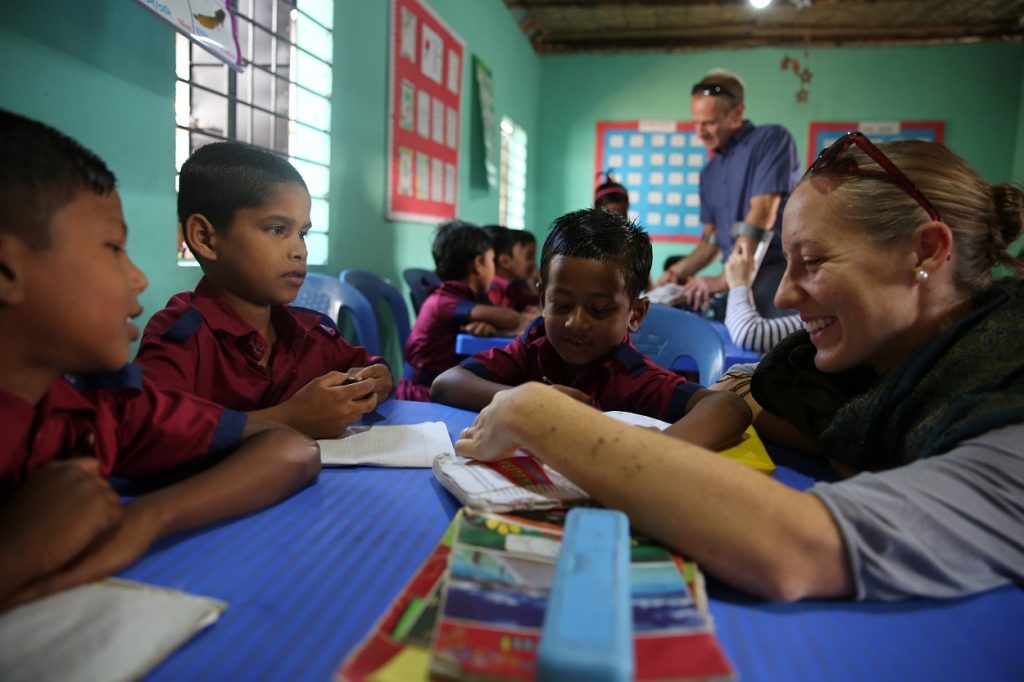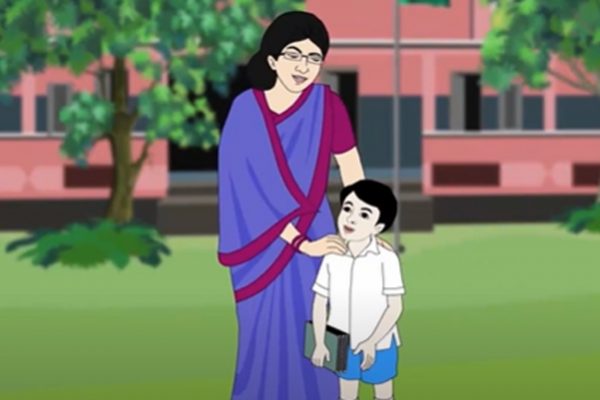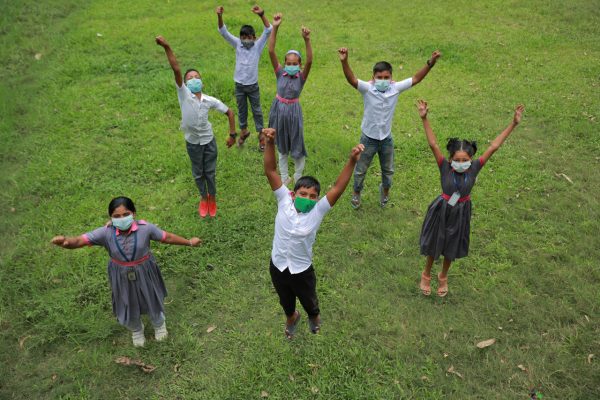Learn to play: 3 playful innovations in education
Reading Time: 3 minutes
The child with his nose in a book might not be the only one learning. This was one of the bold messages from the Frugal Innovation Forum 2017. The forum’s innovators and speakers called attention to children’s right to education and play.
A learning crisis
The child with his nose in a book might not be the only one learning. This was one of the bold messages from the Frugal Innovation Forum 2017. The forum’s innovators and speakers called attention to children’s right to education and play.
But a child’s right to play has been forgotten. Disappearing playgrounds and prevailing pedagogies that push out extra-curricular programmes have become the norm. This year’s Frugal Innovation Forum, themed on “Scaling Quality Education” became a hub for innovators- who see the coupling of play and education as the path for children of the future.
The stark reality of global education is that children are in school, but they are not learning. UNESCO (2017) revealed 617 million children and adolescents in school, lack basic proficiency in reading and mathematics.
At this crossroad between access and quality, internationally diverse organisations brought forth frugal models, toys and playgrounds. Their initiatives resounded that all children could be ‘fortunate’ enough to learn and play, while receiving an education.
Can learning through play be the answer?
Toys from trash
Arvind Gupta, renowned Toy Inventor from India, had all eyes glued in a mesmerising demonstration. His hands moved swiftly like a magician, displaying toys made from trash and everyday materials – frugal toys that teach children about science and mathematics through play.

Arvind Gupta shows students how to make an origami crane. (Photo credit: Tousif Farhad/BRAC)
His demonstration was weaved with references to overlooked models that he has brought back to attention. He used the example of a Harvard mathematician; Arthur Stone’s design of the flexigon (dated 1928) made from an A4 size paper illustrated with a food chain – insect eaten by frog, frog by snake, snake by eagle. A toy only limited by the imagination, which can be made at any school with only a paper, scale and pencil. Videos of Arvind Gupta’s Toys are a available free online and his books translated into many Indian languages are used in rural schools across India.
Curiousity and curriculum

Students experimenting with Karkhana.
Karkhana, founded in Nepal, designs learning experiences within co-curricular school programmes for students between 8-14 years. Pavitra Gautam, CEO, presented the BeeCreative programme, where Karkhana’s teachers lead students to explore and experiment, aiming to kindle children’s curiousity about regular classes.
BeeCreative allocates one class per week, ranging from learning electronics, kinetics to storytelling and communication. These are in turn structured into clusters of 6 to 8 classes that follow a coherent learning sequence. The lesson plans are accompanied by demo kits, and are comprehensively broken down into learning outcomes -behaviour expectations, engaging students, giving responsibility, reflecting, sharing and playing.
Playgrounds for learning
Taking play outside of the classroom, Australia-based Playground Ideas has built 1,885 playgrounds across 147 countries using local materials, people, and tools. Playground Ideas has been far-reaching due to its interactive online interface, detailed Starter Kits, Playground Builders Handbook and extensive hands-on support.
Founder, Marcus Veerman emphasised that play is self-directed and a freely chosen innate tool for children. Play has the capacity to cultivate self-regulation and life skills, while rewarding children with happiness. The non-profit organisation provided writing guidance and research support for “The Case of Play” written by Peter Kollock, that highlights the pivotal role of play in children’s cognitive and social development. Utilising case studies and research of play-based home interventions, the report solidified the impact of early interventions to yield long-term returns. The report showed that early play interventions resulted in a 42% rise in yearly earnings and 44% increase in high school graduations.

Photo credit: Tousif Farhad/BRAC
How to learn now?
Ian Attfield, senior education advisor at DFID, pointed out a need to refocus on quality education, and that merely 2-3% of innovation in universal primary education is cost-effective. He echoed the shortage of funding in education, along with the importance of investing in early childhood development, in order to gain longer-term returns.
The Frugal Innovation Forum 2017 proved itself as a platform for innovators in learning through play, allowing them to showcase truly frugal ways of addressing the crisis in learning. The innovations reflected play-based learning as a sustainable and multidimensional approach, spanning across classrooms, playgrounds and homes. Undeniably there are other crucial factors to bear in mind. However, these changemakers are perhaps giving the education sector a glimpse into unpacking the key to frugally scaling quality education.
Shusmita Islam is an intern at BRAC’s Social Innovation Lab.





